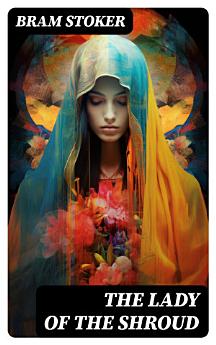The Lady of the Shroud: A Vampire Tale – Bram Stoker's Horror Classic
Dec 2023 · DigiCat
Ebook
272
Pages
family_home
Eligible
info
reportRatings and reviews aren’t verified Learn More
About this ebook
In 'The Lady of the Shroud,' Bram Stoker weaves a masterful tale of gothic intrigue and supernatural romance, exploring themes of love, duality, and the clash between modernity and tradition. Set against the mystique of the Adriatic, the novel employs a rich, descriptive style while incorporating elements of epistolary structure, which heightens its suspenseful narrative. Stoker infuses the text with vivid expositions of setting and character that echo the literary context of the late Victorian era, a time when societal conventions and supernatural beliefs coexisted in fascinating tension. Bram Stoker, best known for his iconic work 'Dracula,' draws on his extensive knowledge of folklore and the occult in his writing. His fascination with the supernatural, coupled with his personal experiences and travels, likely influenced the creation of 'The Lady of the Shroud.' The novel reflects his underlying interest in the complexities of human emotion and the dual nature of existence, which can be traced throughout his literary oeuvre. Readers seeking an enthralling exploration of the gothic genre will find 'The Lady of the Shroud' a compelling addition to Stoker's repertoire. With its evocative prose and intricate character dynamics, this novel invites readers to immerse themselves in a darkly enchanting world that resonates with both horror and poignancy.
About the author
Bram Stoker, born Abraham Stoker on November 8, 1847, in Dublin, Ireland, is acclaimed as one of the preeminent figures of Gothic literature. Best known for his 1897 tour de force, 'Dracula', Stoker's contribution to the genre extends beyond the Transylvanian Count's lore. Another notable work, 'The Lady of the Shroud' (1909), echoes Stoker's fascination with the undead and Eastern European folklore, despite not reaching the same iconic status as 'Dracula'. Stoker's literary style often weaves together the macabre with adventure, a blend that distinguishes him within the late-Victorian horror pantheon. His upbringing in a bureaucratic family, coupled with an interest in theatre - evidenced by his longtime managerial position at the Lyceum Theatre in London - nuanced his storytelling with a blend of dramatic narratives and meticulous detail. Although initially not as widely recognized or critically acclaimed during his lifetime for his now-celebrated novel 'Dracula', subsequent years have cemented his reputation as a master of supernatural fiction. Stoker's work, particularly his characterizations and settings, significantly influenced the horror genre and remain pervasive in modern culture. He passed away on April 20, 1912, but his legacy endures through the continuing popularity and adaption of his literary creations.
Rate this ebook
Tell us what you think.
Reading information
Smartphones and tablets
Install the Google Play Books app for Android and iPad/iPhone. It syncs automatically with your account and allows you to read online or offline wherever you are.
Laptops and computers
You can listen to audiobooks purchased on Google Play using your computer's web browser.
eReaders and other devices
To read on e-ink devices like Kobo eReaders, you'll need to download a file and transfer it to your device. Follow the detailed Help Center instructions to transfer the files to supported eReaders.








